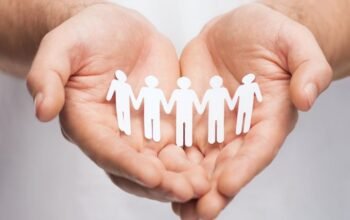Many folks think of childhood as the innocent, good part of their lives; instead it may be a time filled with PTSD and misery. That childhood trauma can be in any shape or form of abuse, neglect, abandonment, witness to violence and growing up with emotionally dysfunctional ways. These often buried experiences have lasting impacts on our adult life. After all, the effects of trauma in childhood can show up later… as relationship troubles…the seeds to your anxiety insatiable depression or that unsolicited feeling of being just inherently unworthy. On the bright side, healing is always an option therapist provides a safe space for working through and on these wounds.
Not even time make the scars of childhood trauma disappear. As a result, it typically gets engrained in the subconscious of an individual which has consequences related to how one regulates emotions and perceives oneself within relationships. Instead, they carry the hurt and harm of their history into what could be a present life. Luckily therapy provides a good approach to help you with this effectively towards the direction of healing and recovery as it enables us break free from our past chains so we can live more life fulfilling.
Understanding Childhood Trauma
There are a whole host of traumatic incidents that can cause trauma in childhood, whether acute (a single event like being involved in an accident or the death of a family member) and chronic ((on-going abuse/neglect). Others may have experienced physical, emotional or sexual trauma while others are responses to witnessing traumatic events. Most of this overcoming happens through years and decades until one day, not unexpectedly these people began to believe that their past somehow reflects who they are so experiences of shame or doubt sneaked up now without warning.
Childhood trauma is devastating because it happens during the most critical time of emotional and psychological evolution. This is the theme of today childhood as a factory for both identity and relationships along with emotional attendance. And if this development process becomes disrupted by trauma, the consequences can be lifelong.
An example of this would be if you were raised in an abusive household it can lead to a deep attachment issue, interfering with your ability to trust or connect on any level. On the other hand, escaped may have ongoing security difficulty which can result in intimate relationship anxiety or avoidance. Trauma has a way of skewing self-perception, making people feel they do not deserve love or achievements.
Signs You May Be Carrying Childhood Trauma
Many people do not realize that all the issues they are dealing with in their adult life stem from childhood trauma. They can be elusive and manifest in a myriad of seemingly unrelated symptoms, which often makes it hard to identify the source underlying emotional or behavioral problems. The following are some classic signals that what happened to you in those early days might still be how the adult-you is responding:
Trouble building and keeping relationships: Trust issues, a fear of abandonment, along with being emotionally unavailable are indications rooted into childhood trauma.
Low Self-Esteem: The message of not being good enough or unworthy is often a deeply held belief from traumatic childhood experiences.
Anxiety and Depression: Emotional pain, fear, or worry that persist well beyond childhood is all too often a result of trauma. PTSD and depression as well anxiety disorders were very common.
Difficulty Regulating Feelings: If you’re a survivor of childhood trauma, it’s probably been difficult for you to regulate your emotions and that could lead to either outbursts or emotional numbness.
Substance Abuse/Addiction: It is also common for an individual to attempt self-soothe with drugs, alcohol or addictive behaviors.
Relationships Work Personal health Therapy can help with tools, support to identify these sign and understanding how they became part of a person but also lead them towards healing.
How Therapy Heals Childhood Trauma
A therapist guides you through a journey, but therapy itself is not an easy fix. Healing from deep-seated childhood trauma takes time, patience and professional guidance. But the work you have to do can be so rewarding and return your life to emotional balance. Let´s take a look at the most important therapeutic directions in treating childhood trauma.
Cognitive Behavioral Therapy ( CBT)
One of the most prevalent trauma-focused therapies is CBT. It is a tool to help people unearth their negative beliefs and thought patterns, often products of childhood trauma. CBT is beneficial for someone with a very negative self-image, such as if they believe that no one loves them because of past abuse. This gives clients insight as to how your thoughts control what you feel and do.
Eye Movement Desensitization and Reprocessing (EMDR) is one of the most evidence-based treatment for trauma.
EMDR (eye movement desensitization reprocessing) is a psychotherapy specifically to help individuals work through disturbing memories. In EMDR therapy, the therapist has to ask the client when they think back on a traumatic event and also provides bilateral stimulation by having them do eye movements or taps while they are thinking about it. This causes the brain to reconsolidate that memory with less of the emotional charge which gives them a new understanding and relief from emotions. Individuals who have PTSD and those dealing with childhood trauma do particularly well in EMDR sessions.
Inner Child Work
Inner child work is a therapeutic concept that requires us to reconnected with and heal the “inner child” which stores our past negative experiences. Inner child work is designed for understanding and healing the needs and feelings of our inner children and offering ourselves some much-needed love, care, or validation that we may not have received when were young. This alone assists in re-parenting the inner child and making sense of those early years—and developing a new self-image.
Trauma-Informed Therapy
Trauma-informed therapy: Trauma can have a profound effect on learning, and trauma-informed educational practices are just one way to help survivors of traumatic experiences. A trauma-informed therapist will make a safe and supportive environment the highest priority one where you are actively seeking empowerment. While EMDR will not be the best fit for all trauma survivors, this modality is imperative for those who are trying to heal from early life experiences and address their impact in a way that avoids retraumatization.
Group Therapy
If you have experienced childhood trauma, group therapy can be a very powerful tool in your journey to healing. In a group, everyone shares their own experiences and feelings on the topic of interest because members find it easier to relate to each other that way. This lessens their sense of separation by developing a brand thatahelps as an investment even they get rituals for everybody. This phased-in group therapy can help by allowing insights and feedback to pour like love into a souls garden of needs sprouting hope.
The Power of Healing Through Therapy
We understand how difficult the healing process can be, but therapy is an important step in long-term recovery and emotional growth. If people look back at their history and begin to heal emotional childhood wounds, it frequently results in major transformations introducing into new life flow. These changes may include:
Better Relationships: As trust develops and attachment issues are brought to the surface, many people find they can now more easily form deep connections with those around them.
More effective emotion regulation: Therapy teaches individuals better coping mechanisms for dealing with their feelings, which in turn leads to more emotional control.
Improve Self-Worth: Therapy tackles negative beliefs and emotional baggage to help you develop a stronger sense of self.
More Resilience: Healing from trauma can make you feel more empowered and resilient which makes it easier to cope with future challenges that may come your way.
Recovering from childhood trauma is about more than feeling the pain of yesteryears; its also reclaiming how desirable our future could be in reality. The journey of self-discovery and healing is held in a space that encompasses support, compassion, understanding; it offers itself as therapy.
Begin Your Healing Journey Today
However, if you see yourself in the list of these telltale signs of childhood trauma described above, keep in mind that healing is also an option. Healing from these wounds requires the tools, guidance and non judgemental support of therapy. Whether your route to recovery is through individual therapy or group, taking the first step can help you heal.
At All in the Family Counselling, childhood trauma is something we have a deep understanding of and can walk alongside you through your healing journey. Our caring therapists have received intensive training in trauma-informed care and are dedicated to supporting you as you find emotional resilience levels higher than before — free from what binds us all to the past.
Stop allowing your childhood trauma to run our entire life. Reach out, and begin healing today.
Healing from your childhood trauma is possible with therapy, offering you an escape from the emotional and psychic chains of days gone by… bringing self-assurance, liberation, generous hope. Although that type of healing is not the easiest, it is definitely possible with the right support.




